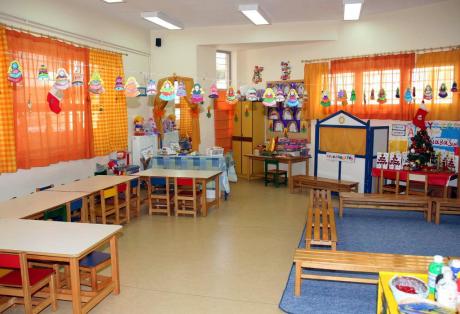
10-08-16 Uniform primary school system expands number of all-day schools, offers new activities
The creation of a Uniform Type Primary School is based on the constitutional commitment to providing equal educational opportunities for all students at the same educational level (primary, secondary, tertiary).
With a 62.97 million euro budget, the project affects 2,133 schools nationwide, with the extension of the optional all-day programme to all current types of schools, in which lessons and activities in a variety of previously unavailable subject areas will be offered.
With the existing system, which features a multiplicity of types of primary schools around the country, the result is an unjust, irrational, and anti-pedagogical situation. Subject areas such as computers and theatre arts, as well as additional teaching hours in subjects such as English, Physical Education and Art, are offered only at one type of school (the Unified Revised Educational Programme), which includes only 1,337 schools, while a whopping 2,218 schools are left out of these additional educational offerings.
At the same time, the school day for first and second grade students at those 2,218 schools ends two teaching hours earlier (at 12:25pm) than for students under the Unified Revised Educational Programme, while for students in the third and fourth grades the school day ends one hour earlier (1:15 pm).
This programme constitutes a major step toward the practical implementation of the principles of equality and justice in education, with a uniform offering of all subject areas and lessons at all types of primary schools with a staff of four or more teachers (3,555 schools).
The Uniform Type Primary School established for the first time a uniformity of schools’ Weekly Hourly Programmes. The plan took into account the recommendations of the Institute for Educational Policy and the reports on mandatory education drafted by the Committee of the National Dialogue on Education.
This new uniform type primary school ensures the enrichment and expansion of the subjects offered (e.g. computers, theatre) to students at all primary schools with four or more teachers (3,555 schools). The basic daily schedule of all-day primary schools will now be 8:00am to 1:15pm, and for the optional all-day programme 1:15pm to 4:00pm.
Hence, the end of the school day is 1:15pm for all grades, and that is accomplished through the adjustment and balancing of teaching hours at schools that operated with the Unified Revised Educational Programme (1,337 schools), on the one hand, and all other types of schools (2,218 schools), on the other.
The optional afternoon programme at the uniform type primary schools (1:15pm to 4:00pm) will ensure one hour of schoolwork study with a primary school teacher, alleviating the homework burden.
In the third hour of the afternoon programme, students are offered an array of subjects – computers, English, physical education, theatre, and music – that create an opportunity for a multi-faceted development of students’ psychomotor skills and knowledge.
For the operation of the programme, general and specialised primary school teachers will be hired, and there will be initiatives to publicise the reform and acquaint students and parents with the changes in the structure and operation of primary schools.
